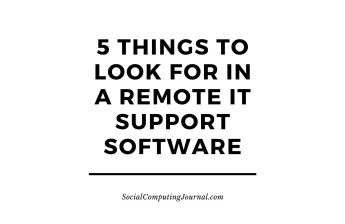Starting a business can be a challenging task. Making the first moves in establishing a business, especially first-time entrepreneurs, might feel like stepping into dangerous, unfamiliar ground. This is why you need a mentor who has been there and done it before can be beneficial to any business.
There are several advantages to finding the appropriate business mentor — and believe us, it’s not as difficult as it appears. In this article you will learn all about mentoring and how to find and communicate with a best mentor for you and your business.
So, let’s begin:
Contents
Who is a Business Mentor?
A mentor has precious knowledge that you lack; who has made all of the essential errors on the path to success, learned from them, and is ready to share those experiences with you.
A mentor isn’t simply aware of the expertise you’ll need to succeed, such as how to improve your Facebook advertising or how to launch a startup. They also have an intuition formed over many years of doing what you want to accomplish, and their experience can help you validate, discard, or shape some of your effective business strategies.
Mentorship is a natural part of almost every profession. However, in the world of business, you’d be a hard time finding a success story that didn’t include at least one mentor:
- Warren Buffett attributes his success to Benjamin Graham’s influence in molding him into a skilled investor.
- Richard Branson claims that his uncle Jim taught him how to channel his quirkiness into business ventures.
- Oprah Winfrey credits poet Maya Angelou’s influence on her as a writer and as a friend and mentor.
According to a UPS survey of over 180 business owners, 70% of those who received mentorship had businesses that lasted five years or longer. That’s more than double the number of businesses that didn’t have a mentor. According to the National Mentoring Day group, 55 % believe mentoring has a beneficial influence on company earnings.
The fact that a mentor is not a consultant is perhaps the essential distinction to make. A good mentor will not charge you for their assistance. They won’t even do the task for you. In the ideal circumstance, a mentor becomes a good friend. They appreciate you as a person; therefore, they consider you a worthwhile investment of their time and vice versa.
That’s because mentorship is a component of a positive karma loop that entails contributing back to people on a similar road to you. After all, you were given the same opportunity.
A person who has achieved some success in life would undoubtedly reflect on their path and desire to know what they know now when they were younger. While time travel isn’t an option, passing those experiences and lessons to future generations is a good substitute.
The difference between a coach and a mentor
Many individuals mix up coaching with mentoring, but they are two distinct partnerships with distinct goals.
Coaching is a short-term personal connection between two individuals in which the coach employs innovative and thought-provoking techniques to help the individual grow professionally and personally. On the other hand, mentoring is a lengthier, mutually beneficial connection – usually a year or more. The mentor assists the mentee in developing professional skills or expertise, and the mentee assists the mentor in honing their leadership abilities.
How to Define a Good Mentor?
When looking for the right mentor for your business or to help you achieve certain professional goals, there are a few characteristics.
- Is an excellent listener: A good listener is an important quality in a trustworthy advisor. During a mentoring session, good mentors know how to balance listening and providing sound advice.
- Everything should be questioned: John, my mentor, always pushed me by questioning my ideas and remarks. It was a little irritating at times.
- Is willing to offer his or her knowledge and abilities: A good mentorship relationship is direct and clear. Look for a mentor that considers the relationship as a two-way track in which you both share your ideas, experiences, and technical skills.
- Are concerned about your professional and personal growth: A good mentor doesn’t require knowing everything about your personal life, but they should assist you in setting personal objectives and connecting them to your career.
Best Ways to Find a Good Mentor
There are several approaches to locating a suitable mentor. If you’re lucky, you’ll come across one or two throughout your life. If not, you should discover someone who has the experience you need in one of the following ways.
# 1: Clarity
While Clarity isn’t technically a mentorship platform (you must pay to talk with these mentors), it does provide on-demand consultations with seasoned professionals and entrepreneurs.
It divides specialists into various business sectors (for example, business development or pitching to investors) for targeted phone conversations that range from $1 to $10 per minute.
Like Quora, there’s also a site where you can ask questions and get answers from expert entrepreneurs.
# 2: SCORE
SCORE pairs you with an experienced mentor for important business guidance, which you can get in-person or online. Most of them are accomplished small business owners who are willing to share their meaningful experiences and information to assist you in running your company.
# 3: LinkedIn
LinkedIn is a straightforward place to look for possible mentors. You’re likely to locate a prospective business mentor among the 774 million members in over 200 countries around the world.
LinkedIn profiles allow you to look for areas of expertise or competence in a mentor. Even if you don’t have their email, you can send them a connection request if you see someone you like.
Try using hashtags like:
- #OfferHelp
- #Careeradvice
- #Mentorship
These hashtags will stay updated on mentoring openings. You can also use the hashtag to keep up with the newest postings and inspiring quotations from various organizations and individuals.
# 4: Online Forums
There are also several online groups where experienced and novice entrepreneurs can discuss their companies. If your post conveys your potential as an entrepreneur and you get yourself out there in the appropriate areas, these forums are a wonderful step towards finding out mentors immediately.
r/entrepreneur and r/smallbusiness, for example, are two subreddits on Reddit where you can seek mentors. For samples of how others have inquired about mentorship, search for “mentor” in these subreddits.
If you have a Shopify business, there are several Facebook groups you can join to get feedback or informal mentoring, such as:
- Shopify Entrepreneurs Ecom Strategy
- Unofficial Shopify Podcast Insiders
Any offerings you get through these means should be avoided. Sometimes they’re consultants who are just interested in charging you for their services. Other times, they may not have the same experience level as the persona they want to convey.
However, asking questions or seeking input in these locations has resulted in beneficial mentorship connections.
# 5: Networking Events
Perhaps you don’t yet have a support system in place. There are several online and in-person tools available to assist with networking and community development.
Events are a fantastic opportunity to meet other businessmen. There are various events where you can contact like-minded entrepreneurs, form important relationships, and possibly meet your mentor throughout the country.
It may take some effort, but it’s well worth it, and if you don’t care for gatherings, there are alternative sorts of networking opportunities to explore. CJ Johnson, Buddytruk’s head of creative and marketing, stated, “I encourage going to happy hour events, networking events, and speaking panels that are within your scope.”
# 6: Twitter
On Twitter, you can identify prospective mentors in the same way that you do on LinkedIn. Despite having half as many members as LinkedIn (approximately 300 million), the social networking site is still a fantastic location to start talks with industry executives.
If you already have a Twitter account, start by looking at the individuals you follow. Who do you look up to as a role model? What kind of person do you want to learn from?
No need to worry if you haven’t created a profile yet. You can also look for mentorship opportunities using hashtags like #MentoringMonday, #mentors, or #mentorshipmatters.
You can find a terrific mentor on Twitter, whether you’re an experienced parent entrepreneur or a first-time business owner.
# 7: Mastermind Group
Entrepreneurship may be a lonely journey of lifelong learning, but it doesn’t have to be with the help of a mastermind group.
Peer mentoring takes the form of a mastermind group. It’s an ongoing support group of like-minded individuals working on their projects while assisting one another, exchanging expertise and skill, and pushing each other on target through frequent meetings.
# 8: Join a Professional Association
Professional associations are non-profit organizations that focus on a certain business or profession. They are typically a good location to locate a mentor because they are specialized.
Visit CareerOneStop, a program funded by the US Department of Labor, to locate relevant professional associations in your sector. Attend the association’s events and network with other professionals who share your interests.
Why Finding the Right Business Mentor is Crucial to Your Business?
Mentorships can be created in a variety of ways; there is no one-size-fits-all approach.
A mentor, on the other hand, should preferably be somebody whose work or profession you respect. After all, the mentor-mentee relationship must be founded on understanding and respect.
An excellent mentor:
- Has a track record of accomplishment in the region you wish to expand in that is apparent and verifiable
- Is open, kind, and enjoys learning new things.
- Is devoted to their profession and skill (this often translates into a desire to teach)
- Has a good work-life balance and is willing to talk with you frequently.
- Is attentive and considerate and does not make up certain responses to inquiries merely to look informed.
- Has previously been mentored and knows the value of mentorship to someone just getting started.
Many mentorships develop spontaneously, beginning as friendships, coworkers, or professors. When a mentor recognizes talent and potential in a mentee, they may decide to nurture it by giving guidance or acting as a source of support for their ideas. The mentee may need to keep seeking out the mentor’s experience and guidance at times.
However, you may build these partnerships from the ground up through networking and cold outreach.
A good mentor helps you not only set up your business foundation, but the guidelines can also be helpful in progressing your business, extending your customer base and reaching to untapped areas as well.
Cold Outreach
Networking, forming relationships, and growing your business can all be accomplished through cold emailing or messaging. It’s also an excellent method to get advice from individuals who have done it before.
Ideally, you’ll want to meet with a possible mentor face to face—whether in person or through Zoom—so you can build a stronger bond with them and demonstrate that you’re passionate about success.
Keep track of their success. These individuals are often inundated with requests for assistance.
Here are a few pointers for starting a conversation with a possible mentor:
- Make a list of precise questions regarding their narrative as well as your company.
- Begin by informing them about yourself, so they can understand your goals and concerns.
- Be mindful of their schedule and show your appreciation (offering to pay for coffee, beverages, or food if you meet them offline).
- Ask them if it’s okay if you remain in touch or send them questions if you have any after the session.
Before all else, get a feel about how much of yourself you can be in the presence of your possible mentor. A strong base of friendship and transparency, as well as a shared interest in a specific subject, is the cornerstone of good, long-lasting mentoring.
Maintaining a Relationship with Your Mentor
One of the most prevalent misconceptions regarding mentorship is that the connection between a mentor and mentee is similar to a teacher and a student (think Yoda and Luke Skywalker or Batman and Robin).
However, this places the burden of proof on the teacher’s shoulders.
Instead, seek mentoring situations where you and your mentor may share a wide difference in experience while maintaining a friendship, openness, respect, and understanding.
Don’t expect your mentor to do everything for you or even show you how to do something (Google can help with that). Rather, rely on your mentor to support your efforts and teach you how to think about your difficulties.
When you’re learning, you’re not supposed to look nice. Be open to new experiences and be inquisitive. Mentorship is very much about posing questions.
Ask Questions
It might be difficult to predict how much dedication you will receive from a potential mentor. Some will give you a more organized connection in which you regularly interact to see how you’re both doing. Many will give you advice when you ask for it or assist you via a Google Chat if you are stuck.
In any event, the connection should be based on friendship and a shared interest. Don’t expect too much from your mentor, but if you need more direction, ask in a respectful way that respects their time: “I receive a lot of value out of these talks.” What do you think about making this a regular occurrence, perhaps once a month?”
The chance to watch you improve and accomplish your goals is the major reason a mentor will devote their time to you. However, you should strive to return the favor by contributing one of your abilities to their initiative or just spreading the information about their current effort. Even a thank-you letter or email is a kind gesture.
Cycle of Learning
The goal of searching out a mentor is to gain valuable advice and develop your career. You must immerse yourself in your difficulties and solve them as you go. You can, however, expedite your progress by choosing a mentor and having access to free learning that they have already paid for with their time and effort.
Keep things basic and uncomplicated while working with a mentor. Someone who is further along in their job typically has something to teach you. The goal is to be receptive to whatever lesson or message is being conveyed.
You also don’t have to depend on a sole mentor. You can benefit from all types of individuals with diverse experiences that you don’t have yet if you’re interested and willing to put yourself out there.
Those who have benefited from mentoring are more likely to want to give back. This is particularly true in the Shopify community, in my experience. Perhaps you will as well. As a result, the cycle continues, with today’s entrepreneurs assisting tomorrow’s entrepreneurs in achieving their definition of success.
Hope the article have served its purpose of educating our readers about mentoring and why it is necessary for new entrepreneurs.







